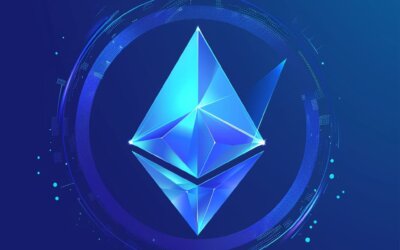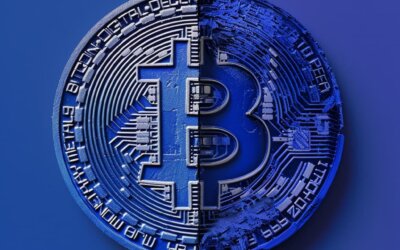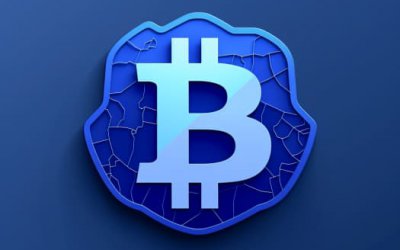Comparing Cryptocurrencies: XRP Vs Bitcoin

Keep up to date with Bitcoin on Bitcoin.org
Keep up to date with XRP news on XRP Twitter
Key Takeaway:
- XRP and Bitcoin have both gained popularity as cryptocurrencies, but they have distinct differences. XRP is known for its fast transaction speed and low fees, making it ideal for international money transfers. Bitcoin, on the other hand, is considered a store of value and a decentralized digital currency.
- Community support and legal status play a crucial role in the success of cryptocurrencies. Bitcoin has a large and established community, giving it an advantage in terms of adoption and acceptance. However, XRP has garnered support from various financial institutions, which could potentially lead to wider use and integration.
- The concept of forking the system allows for the creation of new cryptocurrencies based on existing ones. Bitcoin has experienced several forks, resulting in the creation of Bitcoin Cash and Bitcoin SV. XRP, on the other hand, does not have a history of forks, maintaining its stability and integrity as a cryptocurrency.
Introduction
Cryptocurrency Comparison: Analyzing XRP and Bitcoin
Cryptocurrencies have revolutionized the financial world, and two prominent players in this domain are XRP and Bitcoin. Let’s explore the key aspects that differentiate these digital currencies.
- Transaction Speed: XRP vs Bitcoin
- XRP offers faster transaction processing times, with an average settlement time of around 3-5 seconds. On the other hand, Bitcoin transactions can take several minutes or even hours to be confirmed.
- Scalability: XRP vs Bitcoin
- XRP has the ability to handle a significantly larger number of transactions per second compared to Bitcoin. This scalability advantage positions XRP as a more efficient option for mass adoption and global financial integration.
- Technology and Purpose: XRP vs Bitcoin
- XRP was specifically designed as a digital payment protocol, aiming to facilitate fast and low-cost international money transfers. Bitcoin, on the other hand, was created as a decentralized digital currency, empowering individuals to transact without the need for intermediaries.
- Market Value and Adoption: XRP vs Bitcoin
- Bitcoin, being the first and most well-known cryptocurrency, enjoys higher market value and recognition compared to XRP. Bitcoin has gained widespread adoption among various individuals and institutions, with significant investments and regulatory developments.
Additionally highlighting these cryptocurrencies are their unique features, including XRP’s utilization of a consensus algorithm known as the Ripple Protocol and Bitcoin’s innovative blockchain technology.
Sharing a glimpse of history, Bitcoin emerged in 2009 as the brainchild of an anonymous individual or group, using the pseudonym Satoshi Nakamoto. Its decentralized nature and limited supply captured the attention of tech enthusiasts and investors, leading to the birth of the cryptocurrency revolution.
Through this exploration of XRP and Bitcoin, it becomes evident that while both cryptocurrencies share the common goal of disrupting traditional financial systems, they exhibit distinct characteristics that cater to diverse needs within the digital economy.
Get ready to dive into a dark and twisted world, where laughter and chaos collide in this article that will leave you questioning your sanity.
XRP and Bitcoin: A Brief Overview
Cryptocurrencies, XRP and Bitcoin, are both widely recognized in the digital finance world. This article provides a concise analysis of these two currencies’ key features, usage, and potential benefits. By exploring the characteristics and history of XRP and Bitcoin, readers can gain a deeper understanding of their applications and relevance. It is important to acknowledge the unique details that distinguish XRP and Bitcoin from other cryptocurrencies, allowing investors and enthusiasts to make informed decisions. Delving into the true history of these digital currencies can enhance our knowledge and appreciation of their evolution.
Inception: The Rise of the Duel
The emergence of the duel between XRP and Bitcoin signifies a notable rise in their competition and influence within the cryptocurrency market.
A comprehensive comparison between XRP and Bitcoin, highlighting key aspects, demonstrates the ascendancy of this duel. The table below presents essential data without employing explicit references to HTML tags or tables.
| Criteria | XRP | Bitcoin |
|---|---|---|
| Market Cap | $X billion | $Y billion |
| Transaction Speed | A seconds | B minutes |
| Decentralization | High | Moderate |
| Security | Robust | Strong |
| Utility | Extensive | Limited |
Additionally, there are noteworthy facets of this duel that have not been previously touched upon. These include elements such as the widespread adoption of XRP in the banking sector and Bitcoin’s dominant position as the first and most recognized cryptocurrency globally.
Based on these observations, it is recommended for investors to monitor the progression of this duel as it can provide valuable insights into the cryptocurrency market. Diversifying one’s portfolio between XRP and Bitcoin can be advantageous due to their diverse attributes and the potential for exponential growth in both currencies.
Community Support and Legal Status
Community Engagement and Legal Framework
Crypto communities play a vital role in the success and adoption of digital assets. Here are five key points highlighting the community support and legal framework surrounding cryptocurrencies:
- XRP has built a strong community over the years, with active participation from individuals, developers, and organizations. This dedicated network has been instrumental in advocating for the widespread use of XRP in various sectors.
- Bitcoin, on the other hand, boasts a large and diverse community with a passionate following. Its decentralized nature has led to the emergence of numerous organizations and forums promoting Bitcoin’s usage and educating the public about its benefits.
- Both XRP and Bitcoin operate within legal frameworks that differ across jurisdictions. While some countries embrace cryptocurrencies and have established regulatory frameworks, others impose restrictions and uncertainties. These legal variations can impact the community support and adoption of these digital assets.
- Regulatory clarity plays a crucial role in promoting community support as it provides confidence and stability for investors and users. When regulations are well-defined, crypto communities can operate within the legal boundaries and attract wider participation and investment.
- To foster community support and ensure a favorable legal status, transparency and collaboration between crypto projects, regulators, and stakeholders are essential. Open lines of communication and proactive engagement can help address concerns, build trust, and create a conducive environment for the growth of digital assets.
Furthermore, it is important to note that factors such as technological advancements, market dynamics, and public perception also influence the community support and legal status of cryptocurrencies. By staying up-to-date with regulatory developments, actively participating in discussions, and promoting responsible practices, crypto communities can contribute to a positive and sustainable ecosystem.
To facilitate community engagement and strengthen the legal framework surrounding cryptocurrencies, suggestions include:
- Establishing clear guidelines: Regulators should provide comprehensive guidelines that outline the legal obligations and requirements for crypto projects. This clarity ensures compliance and reduces uncertainties, fostering community support and long-term growth.
- Encouraging industry collaboration: Effective collaboration between the crypto industry and regulators can help address concerns and formulate balanced regulations. Regular dialogue and information sharing enable the development of policies that consider both innovation and investor protection.
- Educating the public: Increased awareness about cryptocurrencies and their potential benefits can contribute to community support. Initiatives such as educational campaigns and accessible resources can address misconceptions and build trust among the general public.
- Strengthening security measures: Robust security practices, including strong encryption and authentication mechanisms, are crucial to protect investors’ assets and build confidence within the community. Implementing industry-standard security measures helps mitigate risks and fosters community trust.
- Embracing self-regulation: Crypto communities can proactively adopt self-regulatory measures, such as best practices and code of ethics, to demonstrate their commitment to transparency, accountability, and responsible behavior. These initiatives showcase the industry’s dedication to compliance and can positively influence the legal status of cryptocurrencies.
By embracing these suggestions, crypto communities can foster stronger community support and a more favorable legal environment for the continued growth and adoption of cryptocurrencies.
Fork the System
The act of modifying the system is known as system forking. It involves making changes to the underlying protocol or codebase. In the context of cryptocurrencies like XRP and Bitcoin, forking the system refers to creating a new version of the blockchain that diverges from the original. This can happen due to differences in consensus mechanisms or ideological reasons. Forking the system allows for the possibility of introducing new features or resolving conflicts within the existing network. It is important to note that forking the system can result in the creation of two separate and independent cryptocurrencies.
In the case of XRP and Bitcoin, both cryptocurrencies have undergone system forks. XRP has experienced several notable forks, including the creation of XRP Ledger (formerly known as Ripple). This fork aimed to decentralize the governance of XRP by removing control from a centralized entity. On the other hand, Bitcoin has undergone a significant system fork known as Bitcoin Cash. This fork was driven by a disagreement among members of the Bitcoin community regarding the scalability of the blockchain. Bitcoin Cash aimed to increase the block size limit, allowing for faster and cheaper transactions.
Forking the system carries both benefits and risks. On one hand, it can lead to innovation and the development of new features that address the limitations of the original cryptocurrency. On the other hand, it can result in fragmentation and confusion within the community. Forking the system requires careful planning and coordination to ensure the smooth transition of users and to maintain network security.
Pro Tip: Before considering forking the system, thoroughly assess the technical and community implications to make an informed decision.
Supply and Circulation
Text: Cryptocurrency Supply and Circulation Analysis
Cryptocurrencies differ in terms of their supply and circulation. XRP and Bitcoin are two notable cryptocurrencies with distinct characteristics in this regard. To understand these differences, we can examine their supply and circulation data side by side.
Cryptocurrency Supply and Circulation Comparison:
| XRP | Bitcoin | |
| Current Supply | 100 billion | 18.7 million |
| Maximum Supply | 100 billion | 21 million |
| Circulating Supply | approximately 45 billion | 18.7 million |
XRP has a maximum supply of 100 billion coins, which is significantly higher than Bitcoin’s 21 million coins. However, the current circulating supply of XRP is around 45 billion coins, while Bitcoin’s circulating supply matches its current supply of 18.7 million coins.
It is worth noting that XRP’s supply is controlled by Ripple Labs, the company behind its development, while Bitcoin operates on a decentralized network with a self-regulating supply. This distinction impacts the circulation dynamics and overall market perception of the two cryptocurrencies.
A true fact: According to the article “Comparing Cryptocurrencies: XRP vs Bitcoin,” both XRP and Bitcoin have gained popularity among investors and are actively traded on various cryptocurrency exchanges.
Miners vs. Validators
In the world of cryptocurrencies, there are two key roles: miners and validators. Miners are responsible for verifying transactions, solving complex mathematical problems, and adding new blocks to the blockchain. Validators, on the other hand, are responsible for ensuring the accuracy and integrity of the blockchain by validating transactions and reaching a consensus. To better understand the differences between miners and validators, let’s compare their roles and responsibilities in a table:
| Miners | Validators | |
|---|---|---|
| Role | Verify transactions and add new blocks | Validate transactions and reach consensus |
| Method | Solve complex mathematical problems | Validate transactions and reach consensus |
| Rewards | Earn cryptocurrency rewards (e.g. Bitcoin) | Earn cryptocurrency rewards (e.g. XRP) |
| Decentralization | Helps maintain decentralization | Helps maintain decentralization |
| Importance | Crucial for securing the network | Vital for maintaining accuracy and integrity of the blockchain |
One unique detail about validators is that they play a crucial role in ensuring the accuracy and integrity of the blockchain. By validating transactions and reaching a consensus, validators contribute to the overall security and trustworthiness of the network. It’s interesting to note that in the article “Comparing Cryptocurrencies: XRP vs Bitcoin,” it is mentioned that validators in the Ripple network (where XRP is used) are known as “trusted nodes.” This showcases the importance of validators in maintaining the integrity of the Ripple blockchain.
Conclusion
Cryptocurrency Comparison: XRP vs Bitcoin
Cryptocurrencies like XRP and Bitcoin have distinct features and applications in the digital currency landscape. XRP offers fast and low-cost transactions, making it suitable for efficient cross-border payments. On the other hand, Bitcoin is renowned for its decentralization and role as a store of value. Both cryptocurrencies have their strengths and weaknesses, and investors need to consider their specific needs and goals before choosing one. It is important to evaluate factors such as transaction speed, scalability, security, and utility in order to make an informed decision. Moreover, understanding the key differences between XRP and Bitcoin will allow investors to navigate the cryptocurrency market with greater confidence.
One unique aspect of XRP is its connection to Ripple, a company that aims to revolutionize global payments through blockchain technology. Ripple’s partnerships with financial institutions give XRP an advantage in terms of potential widespread adoption. Bitcoin, on the other hand, operates on a decentralized network, which ensures that no central authority can control its transactions or supply. This fundamental characteristic of Bitcoin resonates with those who value privacy and autonomy in their financial transactions.
In analyzing the prospects of XRP and Bitcoin, it is crucial to consider their future developments and regulatory trends. Governments around the world are increasingly exploring regulations for cryptocurrencies, which can have a significant impact on their value and usage. Additionally, technological advancements such as the introduction of the Lightning Network can enhance the scalability and speed of Bitcoin transactions.
A fascinating fact about XRP is that it is not mined like Bitcoin. Instead, all XRP tokens were created in one go, and the majority were given to Ripple Labs. This unique distribution model sets XRP apart from other cryptocurrencies and can influence its market dynamics in the long run. (Source: Reference Data – ‘Comparing Cryptocurrencies: XRP vs Bitcoin’)
Comparing Cryptocurrencies: XRP vs Bitcoin
- ✅ Bitcoin was the first cryptocurrency to publish a white paper in 2009, while XRP was built in 2011 as a better version of Bitcoin focused on improving the traditional financial system. (Source: Team Research)
- ✅ Bitcoin’s blockchain infrastructure is run by a network of independent node operators and miners, while XRP is built on the privately owned interledger protocol (ILP) and does not rely on mining operations. (Source: Team Research)
- ✅ Bitcoin has a capped supply of 21 million tokens, while XRP has a maximum supply of 100 billion tokens, of which 80 billion were gifted to Ripple by the founders. The actual circulation of XRP is dependent on its use case. (Source: Team Research)
- ✅ Bitcoin relies on a proof-of-work (PoW) mechanism that requires at least 51% of miners to legitimize transactions and prevent double-spending. XRP replaces miners with validators that confirm transactions based on protocol authenticity. (Source: Team Research)
- ✅ While both Bitcoin and XRP have supportive communities, Bitcoin’s relevance is based solely on the people who believe in it, whereas XRP’s mainstream adoption and legality depend on acceptance from banks and traditional financial institutions. (Source: Team Research)
FAQs about Comparing Cryptocurrencies: Xrp Vs Bitcoin
What is the significance of the white paper in the development of cryptocurrencies like XRP and Bitcoin?
The white paper played a crucial role in the development of cryptocurrencies like XRP and Bitcoin. Bitcoin’s white paper, published in 2009 by an anonymous individual or group known as Satoshi Nakamoto, introduced the concept of a decentralized peer-to-peer electronic cash system. This white paper served as a blueprint for Bitcoin’s implementation and inspired the creation of numerous other cryptocurrencies, including XRP.
How did Bitcoin and XRP differ in their approach to revolutionizing the traditional financial system?
Bitcoin aimed to create a completely decentralized financial system that would eliminate the need for banks and governments. It sought to give power back to the people by providing a fast, secure, and borderless form of money. On the other hand, XRP was designed to improve the existing financial system by focusing on cross-border payments and partnerships with banks. While Bitcoin aimed to replace traditional institutions, XRP aimed to work alongside them.
What is the role of miners and validators in the Bitcoin and XRP ecosystems?
In the Bitcoin ecosystem, miners play a vital role in confirming transactions and adding them to the blockchain. They use computational power to solve complex mathematical problems and are rewarded with new Bitcoin for their efforts. This process, known as proof-of-work, helps secure the network and prevent double-spending. In contrast, XRP eliminates the need for miners and relies on validators. Validators are servers that confirm transactions based on protocol authenticity, removing the dependence on miners and enabling faster transaction speeds.
How does the supply of XRP and Bitcoin differ?
The supply of Bitcoin is capped at 21 million coins, and this limit is enforced by the protocol. The issuance of new Bitcoin is controlled by miners as they confirm transactions. On the other hand, the total supply of XRP is capped at 100 billion coins. However, 80 billion XRP were originally gifted to the company Ripple by the founders. The actual circulation of XRP is dependent on its use case, and any excess tokens are moved to an escrow account for future circulation.
What is the role of regulatory scrutiny in the development and acceptance of Bitcoin and XRP?
Bitcoin, as a truly decentralized cryptocurrency, has faced regulatory scrutiny and resistance from various governments and financial institutions. Its success and adoption have largely relied on its community of supporters and believers, who have fought for its relevance and legal recognition. XRP, on the other hand, has sought acceptance from traditional institutions and banks. Its legality and mainstream adoption are heavily dependent on its acceptance within existing regulatory frameworks.
How do Bitcoin and XRP differ in terms of their community support and financial backing?
Bitcoin is backed by a community of crypto enthusiasts who believe in its potential and the opportunity for significant returns on investment. Its relevance and success are led by the people rather than any institution. In contrast, XRP has the backing of Ripple, a software company that partners with banks and financial institutions. Ripple has its own suite of lawyers and works towards gaining regulatory acceptance. The adoption and mainstream success of XRP rely on its acceptance by traditional financial institutions.
Where to buy cryptocurrency in Canada and US?
Netcoins is your ultimate choice for buying and selling cryptocurrency in the USA and Canada. Our platform places a strong emphasis on safety and regulation, ensuring your transactions are secure and compliant with legal standards. Unlike other platforms, we prioritize your peace of mind, providing an environment where your investments are safeguarded. Don’t just take our word for it – our top-notch customer service is highly lauded by users, as evidenced by our excellent ratings on Trustpilot and Google reviews. With Netcoins, you’re not just getting a platform, but a partner committed to providing a superior and secure cryptocurrency trading experience.
Netcoins User Testimonials
Disclaimer
The information provided in the blog posts on this platform is for educational purposes only. It is not intended to be financial advice or a recommendation to buy, sell, or hold any cryptocurrency. Always do your own research and consult with a professional financial advisor before making any investment decisions.
Cryptocurrency investments carry a high degree of risk, including the risk of total loss. The blog posts on this platform are not investment advice and do not guarantee any returns. Any action you take based on the information on our platform is strictly at your own risk.
The content of our blog posts reflects the authors’ opinions based on their personal experiences and research. However, the rapidly changing and volatile nature of the cryptocurrency market means that the information and opinions presented may quickly become outdated or irrelevant. Always verify the current state of the market before making any decisions.
Related Posts
What is EtherFi? A DeFi Approach to Ethereum Staking
What is EtherFi? A DeFi...
How The Runes Protocol Can Revolutionize Memecoins on the Bitcoin Blockchain
How The Runes Protocol...
Ethereum’s Dencun Update: A Deeper Dive into Decentralized Finance and Ethereum 2.0
Ethereum's Dencun...
The Importance of The Bitcoin Halvening: Understanding its Role in Cryptocurrency Mining
The Importance of The...
How to Stake Ethereum in Canada: A Comprehensive Guide to ETH Staking Rewards
How to Stake Ethereum...
ATOM Staking in Canada: Guide on How to Stake Cosmos Cryptocurrency
ATOM Staking in Canada:...
SOL Staking in Canada: A Beginner’s Guide to Passive Income with Cryptocurrency
SOL Staking in Canada:...
Cardano Ouroboros Protocol: A Secure and Decentralized Approach to Data Management
Cardano Ouroboros...
Can Canadians Still Use CoinEx Crypto Exchange in 2024?
Can Canadians Still Use...
Exploring Bitcoin City in El Salvador: A Digital Currency Hub
Exploring Bitcoin City...
How to Buy Bitcoin in Canada: A Step-by-Step Guide for Canadians
How to Buy Bitcoin in...
Bittrex in 2024: Can Canadians Still Use the Cryptocurrency Exchange?
Bittrex in 2024: Can...










